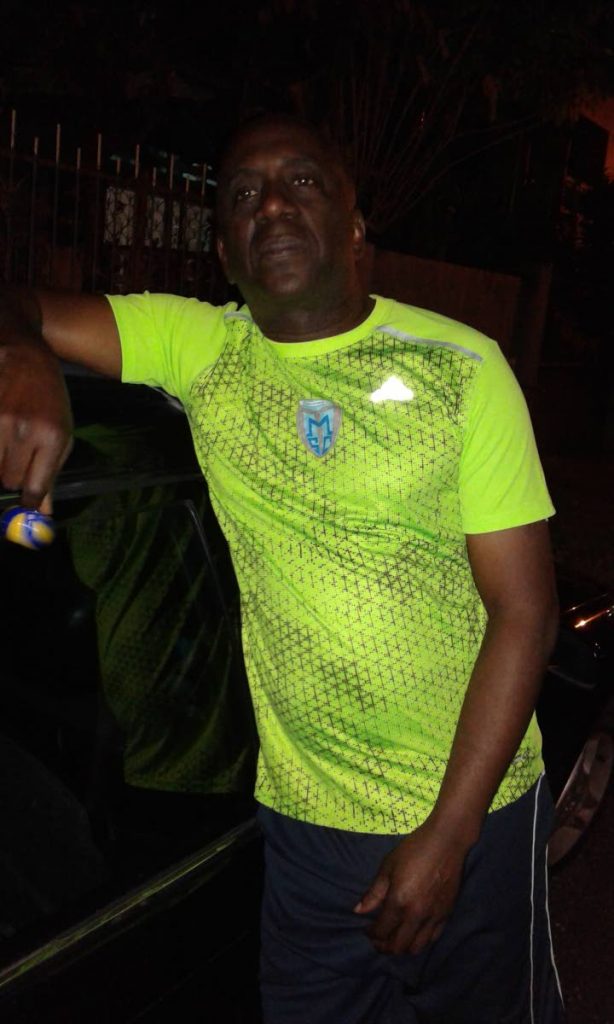Joseph worried over current state of Windies cricket

HAROLD JOSEPH was a household name in Trinidad and Tobago cricket during the late 1970s and early 1980s, as an ace spinner who bamboozled a lot of batsmen, both in the local and regional circuits.
Called “Joe” by his peers, Joseph, who took 75 wickets in 25 First-Class matches, earned a West Indies call-up for the 1981-82 tour of Australia but did not play a Test.
Born in Carapo village in Arima, on July 15 1956, Joseph spent a lot of childhood time at the nearby Santa Rosa Racetrack in Arima and, to this day, he is still a horseracing aficionado.
He dabbled in cricket, as well as football and table-tennis during his teenaged years before he joined Fulham Club in Arima in 1974. His skills were evident from the onset and he was called up to the East Zone team in the Wes Hall Youth Cricket League.
He made the TT youth team in 1975 and 1976 but he found the transition to the senior ranks to be a bit of a struggle.
Joseph did a lot of work in the nets, and also moved to the Crompton Club, which saw him claim over 100 domestic wickets, during the period 1978-1980, a return which guaranteed his spot on the national team on a permanent basis.
He took 18 wickets in the 1981 season, and was included in the WI team for Australia later that year.
In the second and final part of a recent interview, Joseph, who is married and a father of three boys, reflected on the state of cricket within the West Indies his career and his life after cricket.
JOEL BAILEY (JB): How do you view the state of West Indies cricket?
HAROLD JOSEPH (HJ): HJ: I’m sure in my lifetime, I’m not going to see the resurgence of West Indies cricket. To me, that’s a given. What we do about it from here, I don’t have the answer, I don’t think anybody has the answer. What we can do is try to fashion that with the young people. That is as much as we can do. The pool of sportsmen in the West Indies is so thin, apart from so many sports that people are taking up (and) the video games, that is robbing the West Indies of plenty of your youths, as far as sports is concerned. Remember too, the English country cricket has robbed us (a bit) but we can’t blame England for that. If you remember a time in the West Indies, we (were) leaving the shores with a team of 16. You had 15 players playing county cricket, the only one who wasn’t playing county cricket was Augustine Logie. Now when you look (it’s nobody). That gives them that sense of professionalism. Even in the (English) leagues, they depend on you to perform. We have to copy one of these country’s model because it’s not working for us.
JB: There was the South Africa rebel tour situation when you were playing. Did you ponder going on one or both trips?
HJ: I was asked. To each his own. I think it would have been better if we could have gone and played the cricket, to bring South Africa back into the fray. If you look at now, look how much black Africans now playing for the South African team. That would have opened the door, abroad and here, for opportunities. I can’t be against (anyone), everybody has to sing for their own (supper). But I wasn’t going.
JB: Has T20 hurt or helped West Indies cricket?
HJ: It’s like six and half-a-dozen. Most of the players from foreign countries could make a decent living but I do not think that is so in the West Indies because of the remuneration package. But, somehow or the other, we have to find a way to bridge that gap. Even in Trinidad, we have all these players but (we) run last (in the First-Class season). Look at all these players playing in the foreign leagues, and the Trinidad public is not benefitting from their services. Something has to give. It seems like we have square pegs in round holes. It have too many people, on both sides, with too much egos. They don’t have West Indies cricket at heart. There must be some common ground, and it’s sad.
JB: Final question, should there be more WI-born and bred administrators, and coaches involved with the regional team?
HJ: I’m not too sure about the CEO and the running of the Board. With the coaching, I really don’t have a problem with foreign coaches. It’s to get the right mix. A lot of those foreign countries have a foreign coach. It’s choosing the right one. It’s to get the best out of the players. How do we do that? How could you guarantee a local coach can get the best out of a player?

Comments
"Joseph worried over current state of Windies cricket"